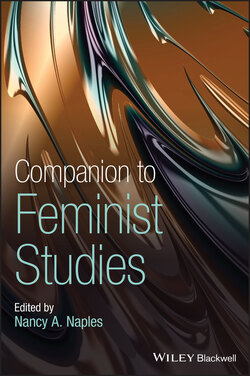Читать книгу Companion to Feminist Studies - Группа авторов - Страница 45
Conclusion
ОглавлениеMarxist feminism currently grapples with old questions: How does capitalist production mobilize social reproduction to the gain of capital? How do revolutionary movements undermine capitalism through collectivizing and socializing the work of reproduction and production to the benefit of all? In the latter half of the twentieth century, women workers have become universal to the workplace, but feminized, unpaid reproductive labor hasn’t dissolved. It has not disappeared through the commodification of reproductive work; nor has it dispersed through its more equal distribution between men and women. Marxist feminist theories of social reproduction sought to understand how the integration of reproduction into capitalism led to “the socialization of production and its private appropriation on an international scale” (Carpenter and Mojab 2017, p. 117). Social reproduction debates develop possibilities for revolutionary forms of sociality writ large: of family, sexuality, desire, embodiment, and pleasure that demand radically altered practices of value, ethics, morality and being (Kabeer and Huq 2014; Nnaemeka 2004; Spillers 1987). Socialist feminism explores how patriarchal values determine the lived, affective relations of reproduction, production, and consumption to stabilize capitalism. They seek to imagine how an integral theory of patriarchal capitalism can produce new subjects and new sites for feminist revolutionary struggle.
Rural agricultural women and men, not industrial workers as Marxism had predicted, led the anticolonial fight against both feudal social order and capitalism. For Marxist feminists today, these ongoing facets of struggle in rural locations of Mexico and Western Sahara lead them to demand new theories of revolutionary subjectivity. To better understand new revolutionary horizons, Marxist feminist theories link labor to desire, need to sensation, through an attention to affective relations in capitalism (Hennessy 2006, p. 388). Imperialism, as capitalism's dynamic core for wresting further profit, informs Marxist feminist ecological visions for the planet. Questions about scientific epistemology and ontology sustain Marxist feminist challenges to capitalism's reflection of the world as atomized (and competing) parts, in order to see its systemic whole (Barad 2012). Ecological imaginaries include revolutionary forms of the commons that reshape gender norms to foster collective solutions to resource depletion (Maathai 2010). Their revival of the politics of vulnerability, shared needs, and mutual reliance support an interspecies environmentalism as well as new scientific theories of being (Clare 2017; Haraway 2016).
Marxist feminist debates widen coalitional possibilities for liberation through analyses of who faces the greatest impacts of capitalist brutality. An intersectional socialist feminist politics does not dismiss race, caste, religion, or sexuality as distractions to the centrality/unity of the proletariat in class politics. Instead, they rely upon a careful understanding of how these forms of domination sustain ongoing exploitation. Strategies for resistance lift the sites of greatest exploitation to better imagine strategies for liberation. Across a range of locations, Marxist and socialist feminists theorize forms of solidarity that transgress classes, gender affinities, and communities to better envision a future that dismantles the values of capitalism and knits our collectivities anew.
